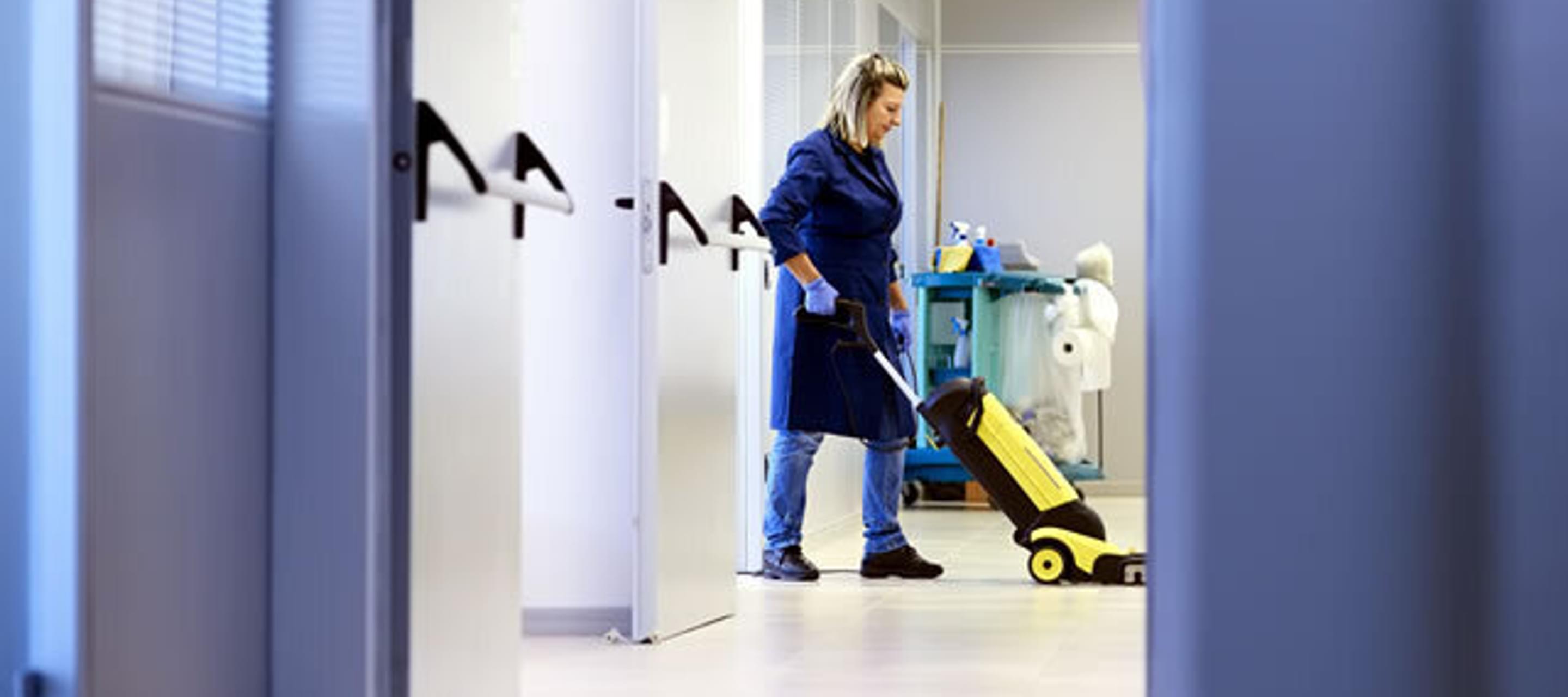The Invisible Workforce
18 May 2014

The UK Equality and Human Rights Commission recently published its report, 'The Invisible Workforce'. This sets out our findings on employment practices in the cleaning sector.
Our key findings include:
- Workers are not treated with dignity and respect, and describe themselves as 'the invisibles' and 'the lowest of the low'.
- Cleaning operatives said they received no support when they complained of being harassed or bullied, and some said they were punished with worse duties or sacked for raising concerns.
- Significant numbers of cleaners reported problems with under-payment or non-payment of wages.
If you want to find out more about the findings, you can read the report at
www.equalityhumanrights.com/invisible_workforce
In producing this report, the approach we took was to look at the experiences of employees and employers through the lens of international human rights standards, as set out in the UN Guiding Principles on Business and Human Rights.
The Commission started up in 2007. It is a regulator for equality and human rights in Britain, funded by government but independent. We are also an A status national human rights institution. As an NHRI we have a role in ensuring government is protecting human rights and helping businesses implement the UN Guiding Principles.
The Commission has undertaken studies on specific sectors, for example, meat and poultry processing, home care, and construction. These studies brought to light evidence that some groups protected in law still experience discrimination in the work place or when using services. The studies also revealed when practices had an impact on human rights. After publishing its reports, the Commission worked with each sector to improve practices in employment and service delivery.
In September 2013 we began an assessment of the cleaning sector. Given our NHRI role, we were keen to raise awareness of the relevance of international human rights standards to the workplace. To do this we decided to develop an equality and human rights framework, informed by the list of rights set out by John Ruggie as those businesses are more likely to impact on[1]. We identified nine from this list, which we thought were most relevant for the cleaning sector, and access to redress. These were:
- Just and favourable remuneration
- A safe working environment
- Equality and non-discrimination in the workplace
- Equal pay
- Rest and leisure
- Freedom of association
- Collective bargaining
- Abolition of forced labour
- Privacy
- Access to redress
We chose these issues for many reasons. Equality and non-discrimination was an obvious one, not just because of our mandate but also because the cleaning workforce largely consists of women, migrant and older workers. We picked just and favourable remuneration as we found a striking number of Employment Tribunal cases about non-payment of wages in the sector. We thought a safe working environment was relevant due to the demanding physical nature of cleaning and the use of dangerous chemicals. We looked at privacy following reports that employers used CCTV to monitor cleaning operatives more intensively than other workers.
We then compiled a list of positive and negatives examples for each issue to help explain them in a meaningful way for both the smallest cleaning firm and the biggest facilities management company. You can find our framework here.
For example, for just and favourable remuneration we identified the positive indicators, such as:
- Workers receive at least National Minimum Wage
- Deductions from wages are not carried out as a disciplinary measure.
- Pay slips are clear and easily understood by workers
We identified negative indicators, such as:
- Delayed or non-payment of wages.
- Excessive deductions from wages for uniforms, transport or accommodation.
Explaining human rights in this very practical way means that every employer and employee can understand how human rights are relevant in the workplace. Rather than assuming that human rights are about problems elsewhere, this approach helped people immediately understand why they are relevant to their everyday lives and how firms do business.
We reported our findings against the framework. Cleaning firms, clients (those that outsource their cleaning services), trade bodies, trade unions and any other interested party can look at our findings and see what we found in each area.
Our findings may be especially relevant for cleaning firms and clients who are required to report on human rights as part of their narrative reporting under the Companies Act. The issues set out in our framework suggest what issues companies should consider. Our report also gives examples of good practice, which companies may wish to emulate.
The framework we developed is not complicated, and has helped improve understanding of the relevance of human rights to the cleaning sector. Our framework is a model that can be easily adapted to different sectors.
Our report makes recommendations to improve employment and outsourcing practices in the cleaning sector. For example, it highlights the need for employers to ensure they meet their legal obligations to pay workers in full and on time, establish grievance procedures to enable workers to raise concerns and employers to address them, and consider paying the Living Wage.
But our work does not end with the publication of our report. We have also brought together a taskforce of cleaning firms, client firms, regulators, trade unions and trade bodies to identify cost-effective practical solutions to the issues we uncovered and to work with us to improve employment standards in the sector.
Our framework, findings and case studies can all be read on our web site:
www.equalityhumanrights.com/invisible_workforce
[1] Report of the Special Representative of the Secretary-General on the issue of human rights and transnational corporations and other business enterprises, John Ruggie, 2008, ' Protect, Respect and Remedy: a Framework for Business and Human Rights'. http://shiftproject.org/sites/default/files/Ruggie-report-7-Apr-2008.pdf


